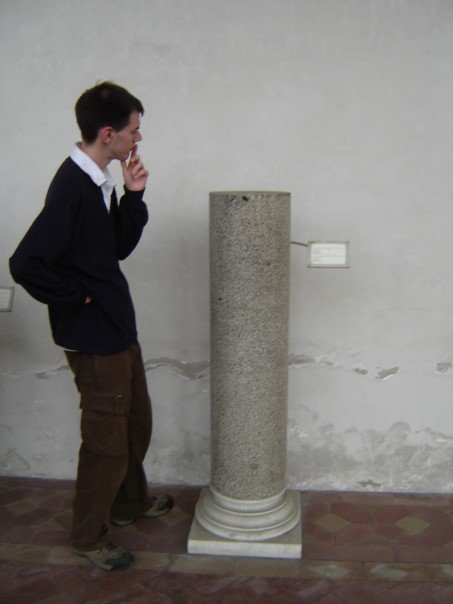A solitary figure stands against the desert background. A hat, a poncho and a cigar. All these things point to mean, tough, Clint – the man with no name. The Eastwood persona is one that we (I mostly, but I'll drag you into it too) can idolise. That man on his own, in need of no-one but himself, and capable of completing the task which he sees fit.
The problem with emulating him was made clear both by the fact that God has now made him grate on me – the often unforgiving violence from him and his films. But even Gran Torino shows him as a curmudgeonly old man, wanting to be left alone, and the story of the film is that he softens and does what is right; sacrificing his life, which is going anyway, to bring a better life for the neighborhood.
Why not be soft to start with?
I'm not saying we should be walked over, but it has come to my attention that in life I often try and walk through it alone, surrounded by many friends, but to what impact? Is it for my enjoyment and gratification, or is it something mutual, to which I need to bring my part. Over the last year I have seen God working in my life, often doing things I don't want, with the realisation of who he is. Having put god in a box, we can isolate ourselves, coming out when we need to, to help people and spiritualise. But if being spiritual is a state of being, in which we actively need God and other people, because loving these two groups are the only laws that we have, then this can't be.
Henri Nouwen's book 'In the Name of Jesus' has spoken right into this. As a Christian minister to students, it's easy to get confused between friendship and work. And therefore easy, when it is tough, to switch off and retreat. Nouwen was broken by God because he moved into a community where this was not possible. I am maybe one step away, but I am still a housemate, colleague, friend, son, brother... I need God to change the way I think and behave so that I can step away from solitary hero status, and into committed friend and co-disciple; willing and then able to naturally learn from each other, and most importantly Jesus.
To be God's people (plural), we need to be just that. Devoted to Jesus personally. Devoted to each other. Devoted to making him known together, 'In the Name of Jesus.'

